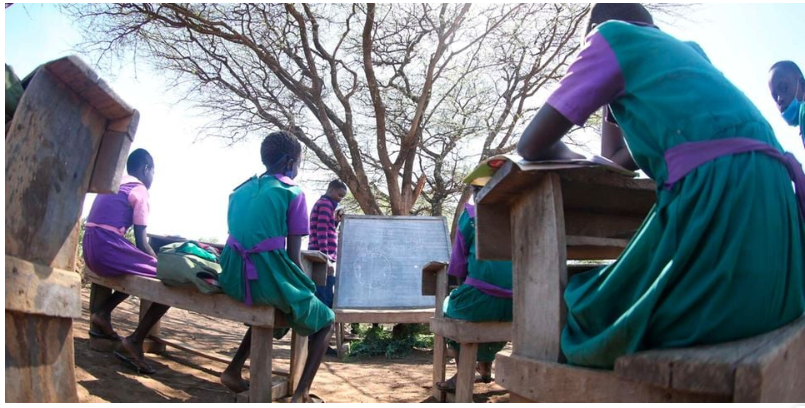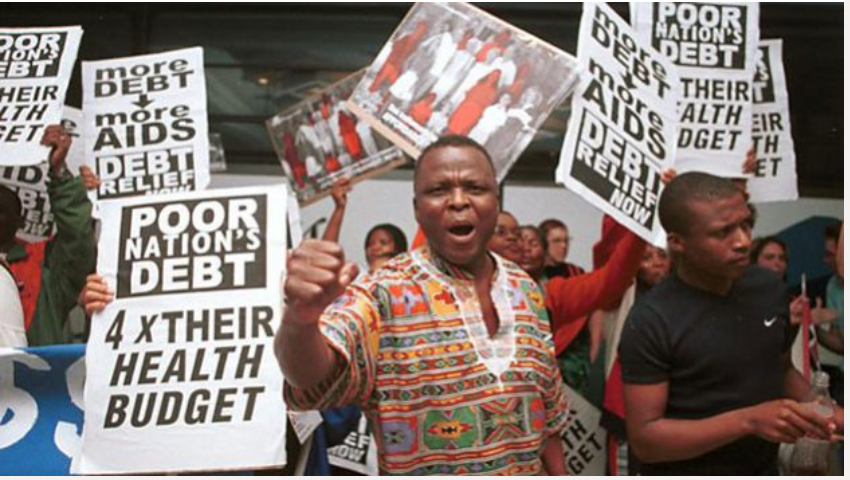 The statistics are stark: 54 governments, of which 25 are African, are spending least 10% of their revenues on servicing their debts; 48 countries, home to 3.3 billion people, are spending more on debt service than on health or education. Among them, 23 african countries are spending more on debt service than on health or education.
The statistics are stark: 54 governments, of which 25 are African, are spending least 10% of their revenues on servicing their debts; 48 countries, home to 3.3 billion people, are spending more on debt service than on health or education. Among them, 23 african countries are spending more on debt service than on health or education.
While the international community stands by, these countries are servicing their debts and defaulting on their development goals. The group pf 20s current approach for dealing with the debts of low income countries is the common framework.
It requires the debtor to first discuss its problems with the International Monetary Fund (IMF) and obtain its assessment of how much debt relief it needs. Then it must negotiate with its official creditors international organisations, governments and government agencies over how much debt relief they will provide. Only then can the debtor reach an agreement on comparable terms to the official creditors with its commercial creditors. Unfortunately this process has been sub-optimal.
One reason is that it works too slowly to meet the urgent needs of distressed borrowers. As a result, it condemns debtor countries to financial limbo. The resulting uncertainty is not in anyone’s interest. For example, Zambia has been working through the G20’s cumbersome process for more than three and a half years and has not yet finalised agreements with all its creditors.
The need for a new approach is overwhelmingly evident. Although the current crisis has not yet become the systemic threat it was in the 1980 when multiple countries defaulted on their debt, it is a silent sovereign dept crisis.
We propose a two-part approach that would improve the situation of sovereign debtors and their creditors. This proposal is based on the lessons we have learned from our work on the legal and economic aspects of developing country debt, particularly African debt. First, we suggest that official creditors and the IMF create a strategic buyer of last resort that can purchase the bonds of debt distressed countries and refinance them on better terms.
Second, we recommend that all parties involved in sovereign debt restructurings adopt a set of principles that they can use to guide the debtor and its creditors in reaching an optimal agreement and monitoring its implementation.
The current approach fails to deal effectively and fairly with both the concerns of the creditors and all the debtor’s legal obligations and responsibilities. Our proposed solution would offer debtors debt relief that does not undermine their ability to meet their other legal obligations and responsibilities, while also accommodating private creditors’ preference for cash payments.
Our proposal is not risk free. And buybacks are not appropriate for all debtors. Nevertheless it offers a principled and feasible approach to dealing with a silent debt crisis that threatens to undermine international efforts to address global challenges such as climate, poverty and inequality.
It uses the IMF’s existing resources to meet both the bondholders’ preferences for immediate cash and the developing countries’ need to reduce their debt burdens in a transparent and principled way. It also helps the international community avoid a widespread default on debt and development. Foreign bondholders, who are the major creditors of many developing countries, have proven to be particularly challenging in providing substantive debt relief in a timely manner. In theory, they should be more flexible than official creditors.
Developing countries have been paying bondholders a premium to compensate them for providing financing to borrowers that are perceived to be risky. As a result, bondholders have already received larger payouts than official creditors. Therefore, they should be better placed than official creditors to assist the debtor in the restructuring processes.
First, the official creditors and the IMF should create and fund a strategic buyer “of last resort” who can purchase distressed (and expensive) debt at a discount from bondholders. The buyer, now the creditor of the country in distress, can repackage the debt and sell it to the debtor country on more manageable terms. The net result is that the bondholders receive cash for their bonds, while the debtor country benefits from substantial debt relief. In addition, the debtor and its remaining official creditors benefit from a simplified debt restructuring process.
 This concept has precedent. In 1989, as part of the highly indebted poor countries, the international community’s effort to deal with the then existing debt burdens of poor countries, the World Bank Group established the Debt Reduction Facility, which helped eligible governments repurchase their external commercial debts at deep discounts. It completed 25 transactions which helped erase approximately US$10.3 billion in debt principal and over US$3.5 billion in interest arrears.
This concept has precedent. In 1989, as part of the highly indebted poor countries, the international community’s effort to deal with the then existing debt burdens of poor countries, the World Bank Group established the Debt Reduction Facility, which helped eligible governments repurchase their external commercial debts at deep discounts. It completed 25 transactions which helped erase approximately US$10.3 billion in debt principal and over US$3.5 billion in interest arrears.
Some individual countries have also bought back their own debt. In 2009, Ecuador repurchased 93% of its defaulted debt at a deep discount. This enabled the government to reduce its debt stock by 27% and promote economic growth in subsequent years.
Unfortunately, the countries currently in debt distress lack sufficient foreign reserves to pursue such a strategy. Hence, they need to find a “friendly” buyer of last resort.
Sovereign debt restructurings should be guided by six norms: credibility, responsibility, good faith, optimality, inclusiveness and effectiveness. Optimality means that the negotiating parties should aim to achieve an outcome that, considering the circumstances in which the parties are negotiating and their respective rights, obligations and responsibilities, offers each of them the best possible mix of economic, financial, environmental, social, human rights and governance benefits. All parties should have access to the information that they need to make informed decisions.
Ennywealth


